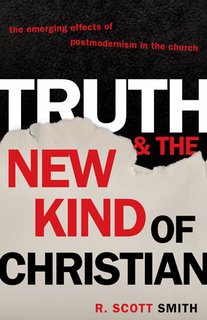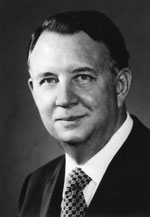Emergent Truth:
The Postmodern View of Truth
And Its Destructive Effects On Orthodox Christianity
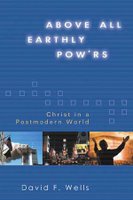
We live in a time when the enlightenment ideas that brought about modernism are being contested. The “we can do it” attitude is coming to an end. In the words of David F. Wells in the book,
Above All Earthly Powers, he tells us that there are three fundamental beliefs of the enlightenment “The disappearance of God, the disappearance of human nature, and omnicompetence of the human being (33).” He goes on to tell us that the disappearance of God, was driven by the enlightenment thinkers “opposition to what they saw as superstition (33).” God was no longer needed and we could figure things out on our own was the attitude of the day. The disappearance of human nature was the result of the idea that we have no inherent nature, instead “we must make oneself what one can (52).” As far as the omnicompetence of the human being, Wells tells us “It is rather ironic that these first two themes—the disappearance of God and of human nature—should accompany the third, which is the bloated sense of human capacity (52).” But this is exactly what happened. We came to believe that we could do it all. We could usher in a better world, through the use of science, and know how (read philosophy).
But after a couple world wars, epidemics like AIDS, and many other problems we have been unable to solve, we have begun to loose our nerve. All of these things have begun to chip away at our hopes that modernism could solve our problems. So where do we go from here? Where do you go when you start to lose hope? Welcome to the new world, the postmodern world. It’s a world where we cannot figure out everything. In fact we realize now that we cannot figure out anything. People don’t want to hear about the one true truth. They have been let down by modernism which promised that it could be figured out. Now we just need to know what works.
How does this shift affect the church? Should the church embrace these new ideas and trends, or
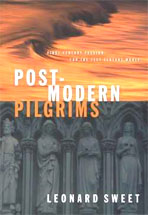
should it continue in its same old ways. There are many who argue that if the church does not break free from the grip of modernism it is destined to fail. This is the view of the emergent church, a new movement within church which desires to reach this postmodern culture. A movement that feels the church has bought into the modernist views and needs to correct itself. Leonard Sweet, a proponent of the emergent church, claims that his book P
ostmodern Pilgrims “aims to demodernize the Christian consciousness and reshape its way of life according to a more biblical vision of life that is dawning with the coming of the postmodern era (Sweet, XVII).” But is this what the Church needs to survive and be more “Biblical?”
The remainder of this paper will focus on explaining the Emergent views on such topics as foundationalism, language theory, and some other basic doctrines. It will then look at its destructive effects on Christian doctrine, theology, and evangelism. And will conclude by offering a proper view regarding these topics and offer some final thoughts.
Explaining Emergent ViewsOne of the main views expressed by postmoderns of the secular and theistic type is that there is no such thing as universal objective truth. Objective truth is truth that is true for all people in all places at all times. The reason they hold this is because they do not think it is possible to know any true thought since all thoughts are language based and all language is contingent. This will be addressed further, but the first attempt they make at discounting truth is by discounting foundationalism.
Foundationalism
Foundationalism is the belief that there are two different types of beliefs, basic and non-basic. In the words of Ronald Nash, non-basic or “derivative beliefs are those that are grounded on or dependent in some way on more basic beliefs. Basic beliefs are those not derived from or dependent on other belief (Nash, 81).” Foundationalism is the idea that a person’s noetic structure is built from the bottom up. The basic beliefs are those that need no other support in order for a person to be rational and hold them. The non-basic beliefs cannot be held rationally unless something more basic supports them. An example of a basic belief would be that you exist. In order for you to believe that you exist, you do not need evidential proof. Nor do you need to attempt to prove it to someone else. This is a basic belief. A non-basic belief would be something like; God saves those who believe in His Son. This belief is supported by other more basic beliefs like, people exist and God exists.
There are two types of foundationalism. Narrow and broad foundationalism as described by Nash, or Cartesian and modest as described by J.P. Moreland in the book
Reclaiming the Center. Narrow or Cartesian foundationalism is the belief that in order for a belief to be basic it must have 100% certainty. Nash explains that in order for a belief to be basic according to narrow foundationalism it must meet three criteria. Basic beliefs are “beliefs that are evident to the senses, self-evident, or incorrigible may be properly basic (Nash 81).” This simply means that no belief can be properly basic that is not experienced with the senses of human experience, self evident in the sense that they are seen as true or false simply by understanding them (82), and cannot be proven false. But as Nash quotes Alvin Plantinga when he says, “Many propositions fail the narrow foundationalist’s tests are properly basic for me. I believe, for example, that I had lunch this noon. I do not believe this proposition on the basis of other propositions; I take it as basic’ it is in the foundations of my noetic structure. Furthermore, I am entirely rational in so taking it, even though this proposition is neither self-evident nor evident to the senses nor incorrigible (86).” Broad or modest foundationalism makes room for these kinds of basic beliefs saying that 100% certainty is not needed in order to be a rational basic belief.
The postmodern epistemology rejects this type of thinking. They see no difference between basic and non-basic beliefs. First, they do not believe that there is any way possible to have 100% certainty on any belief, and if you cannot have certainty then it cannot be a true foundation. Second they believe that if a belief is not certain then it cannot be basic because it must be supported by some other beliefs. Nancy Murphy a proponent of the postmodern view says that with modest foundationalism we have “foundations hanging from a balcony (Erickson, 109).” What she means by this is that our theory and presuppositions will end up holding our foundations instead of our foundation holding up our theories. This means that our basic beliefs are contingent upon our theories which are non-basic making our basic beliefs non-basic also. The postmodern goes on to explain that since we cannot have any true basic beliefs, foundationalism must be a false system of epistemology.
Correspondence theory of truthIn all of this, they argue that if we cannot have any certain foundation upon which to build our noetic structure then we do not really have any access to the outside world to say that our belief system actually corresponds to reality. This is why they reject the correspondence theory of truth. This is the theory that the truths we hold actually correspond to the world as it really is. If someone was to say that the sun is hot, it is usually understood that what the person means is that in the world as it really is, the sun is hot. The postmodern’s second attack upon foundationalism comes in at this point. Besides simply arguing that there is no such thing as a basic belief, they go on to say that, all truth is linguistically constructed and all language is contingent upon many different factors such as community, experience, etc. Because of this our language cannot correspond to the world as it really is because our language is “in” the world. R. Scott Smith explains the views of Stanley Grenz and John Franke in this way, “What is it that stands between the ‘real’ world and us? It is language, such that, as Grenz and Franke say, “We do not inhabit the ‘world-in –itself’; instead, we live in a linguistic world of our own making (Erickson, 110).”
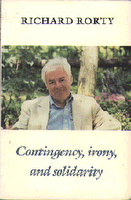
Richard Rorty, a major non-Christian postmodern philosopher puts it this way, “To say that truth is not out there is simply to say that where there are no sentences there is no truth, that sentences are elements of human language, and that human languages are human creations (Rorty, 5).” This is obviously stating that truth is a human creation. We do not have access to objective truth; instead we create our truth with our language. Again truth does not correspond to reality. Rorty goes on to say, “Truth cannot be out there—cannot exist independently of the human mind—because sentences cannot so exist, or be out there (5).” In other words, since there are no true sentences out there in order for our sentences to line up with, then our sentences cannot correspond to the real world.
Coherence Theory of TruthSo where does this leave us? If foundationalism is false and the correspondence theory of truth is false, how should we look at truth? The postmodern view is known as the Coherence theory of truth and it is also called Holism by those in the emergent church. Since there is no foundation that our “truth” can be tied to, the only way it can be supported is by itself. In other words the most important aspect of “truth” is that our system as a whole is consistent and non-contradictory. The postmodern view leans heavily upon W.V.O. Quine’s “web of belief”. Tony Jones in the book Postmodern Youth Ministry explains it this way, “The fabric, or “web of Belief,” is fashioned by human beings—there is no divinely inspired web (Jones, 138).” He later goes on to say, “Instead of being based upon on indubitable truth-doctrine, the web has truths-doctrine distributed throughout. Therefore, if one truth-doctrine gets adjusted or overthrown by a new discovery, the web repairs itself by adjusting or tweaking other doctrines (138).”
The argument can basically be boiled down to this, that a truth system, or “web” is not founded upon any foundation, instead it is an integrated system that supports itself. But this doesn’t really give us any answers as to what is actually true; it only tells us if our beliefs are coherent with each other. On top of this, if no truth statement can actually correspond to reality, where do we get our stability? How do we know our web is the right one?
Eschatological Realism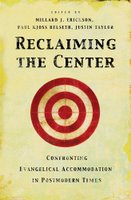
In order to maintain some objectivity they appeal to eschatological realism. This is the view that we are working toward a community that will eventually understand correctly. “This vantage point provides the world with its mains sense of objectivity (Erickson, 119).” But the question may still arise as to how these truthful eschatological communities are created if we cannot know anything with our fallible tradition invading them? The answer is that they are created by the working of the Holy Spirit. Smith goes on to explain the views of Grenz and Franke. “Even though each community will have its own nuances they will all have something in common. The Spirit will speak through the Biblical texts, and it will guide them to be a community of Christ (119).”
What is the point of all this? The Church should stop focusing on trying to prove all these independent truth claims as true and let the “web” of Christianity support the claims. Our focus should be to live out our beliefs in our Christian communities and let the Holy Spirit move us toward the eschatological community where we will be able to see what is really true. In doing this we will be boldly witnessing our faith by our lives. We will have a strong body of Christ because we will be less divided by independent doctrines, and we will grow as individuals as we are in this community of Christ and become more like Christ.
The Effects of These ViewsThe relief from always having to try and prove your Christian faith sounds like a welcome idea and the desire to grow into the likeness of Christ in a community that is modeled after him sure seems to be a wonderful aspiration. So, should we really be concerned with these postmodern Christians? Should we not join them, and do what Leonard Sweet told us at the beginning of this post? Should we shake free from these modern entrapments such as foundationalism and the correspondence theory of truth and get back to a more “Biblical” Christianity? After taking a closer look at the effects of these theories it will be evident that we should
not join them.
The heart of their view is that we cannot have access to the real world. Everything we believe is true is really something we have created because of our theories which are contingent upon our communities, which themselves are contingent. Now if no proposition we believe actually corresponds to reality, than nothing we believe is actually true. Then what does this say about all of their theories? What becomes then of all their reasoning for replacing foundationalism, with holism? Doesn’t this just make their own theories constructs that they have linguistically created to make their truth? Are not their theories also contingent upon their presuppositions that they have no rational basis for holding? Their entire system then becomes self refuting. Why should we shift our created beliefs over to their created beliefs? This is the major flaw upon which the entire postmodern theory stands.
This forces postmoderns to look to pragmatic results of language instead of whether or not it is true. Pragmatism is the theory that we should do what works. If we cannot know if something is really true, then the best way to judge it is by whether it works or not. The Christian language, according to the emergent church, is the best possible language. Not because it is the one that most corresponds to reality but because it holds together tightly and it works. It works in producing good and not evil.
What then does this do to orthodox Christianity and its doctrines? To answer this I will follow the lead of R. Scott Smith and apply their views to a few core Christian Doctrines.
The Doctrine of Divine RevelationChristians believe that God exists and that He can communicates truth about Himself to us. He does this as Luis Berkhof explains through two different revelations, general and special. “The general revelation of God is prior to His special revelation in point in time. It does not come to

man in the form of verbal communications, but in the facts, the forces, and the laws of nature, in the constitution and operation of the human mind, and in the facts and experience and history (Berkhof, 13).” “In addition to the revelation of God in nature we have His special revelation which is now embodied in Scripture (14).” But if the post-conservative view is correct, then God cannot truthfully communicate to us because we cannot escape language. Any truth He tries to communicate to us either through general or special revelation, we end up creating ourselves with our specific language. Ultimately we cannot know anything objectively true about God. If we do not inhabit the world as it really is, instead we inhabit a linguistic world of our own making, then this leads to a major incoherence in the Christian “web” of belief, because idolatry is prohibited. Smith makes this revealing comment, "Therefore, no matter how God tries to reveal himself and objective truth, we cannot know such revelation in itself. Accordingly, we make the revelation what it is for us by how we talk about it. The same goes for God himself. We cannot know God as he is in himself, so we must make God by how we use our language. But that result is plainly idolatrous on the

terms of conservative Christians’ own grammar, the Bible. If I am right, then that result alone ought to make us pause and give up these postconservative views. (Erickson, 127).” In the book Truth and The New Kind of Christian he says it like this "Quite simply, Christians cannot know God as He is if we are on the “inside” of the pervasive influences of language, as these Christian postmodernist believe. Just like any other aspect of our “reality,” Christians construct God by how they talk. We make God into what He is—for us. This conclusion, however, results in the absurd condition that Christians must be idolaters (Smith, 145)."
Now the objection to these quotes might be raised that postmoderns do believe that God can actually reveal Himself and is doing so. After all they believe that the Holy Spirit, through the narrative of the Scripture is leading them on to the true eschatological community. But the question still remains as to what the Holy Spirit is. Is He something that actually exists in the real world or is it simply the linguistic construct that Christians have created? Also, what is the eschatological community of Christ that we are working toward? Is this not the same, a created linguistic truth? Or is it something that actually corresponds to reality. Either way they answer this question leads them into trouble. If they say it is a created linguistic truth then it cannot be objectively true, and if they say it actually corresponds to reality then they have refuted their own system. Also, if this is the one truth that corresponds to reality then why can’t this be the foundation upon which we can build our doctrine?
We also have the problem of which eschatological community is the correct one. Rorty, the non-Christian, also believes we are moving toward a “liberal society” (Rorty, 60).” But the community he is moving toward is not the Christian one. So which future community is the right one, and how do they know this?
The Crucifixion, Resurrection, and AtonementWhat do these theories do to the Doctrine of the crucifixion, resurrection, and the atonement? Christians believe that Christ was crucified, and rose for our justification, but these too would be constructions of our language. But do the truths we hold regarding these events actually correspond to reality? To say no is quite damaging to these doctrines because, the truth then is not found in the actual propositions but what they produce in you. So the question must then be asked, does this make all savior stories valid because they move us toward this eschatological community? And which theory of the atonement is really true, the moral influence, limited atonement, or universal atonement to name three? Does it really matter what theory we hold as long as it makes us good community participants?
JustificationLuther said that the doctrine of Justification is the article upon which the Church stands or falls. But what does the Emergent view of truth do to the doctrine of Justification? Christian’s believe that we are sinful and deserve the wrath of God, and it is only by faith that we can be justified. But if the postmodern view is correct, then justification becomes a truth that we create in our linguistic community, and we cannot know whether or not justification has actually taken place in the real world, or if we are really even sinners.
One of the main problem with the emergent view on this doctrine is that since we cannot say it is an objective reality, we must look at its pragmatic results. But if we turn the doctrine of justification into something that works, then we must ask, works to do what? It seems that the emergent answer is whether or not it works to make us better people in the community we find ourselves. This is why we see a strong bent toward the Roman doctrine that justification and sanctification are two sides of the same coin. Jones makes this statement, “We must end the false dichotomy between justification and sanctification (133).” Jones had been speaking about salvation and how justification is not a one time thing and how it is a process. The implication of this view is that the way you get justified, is by becoming just (not imputed righteousness). The way you are to do this according to the emergent view, is by getting involved in a Christian Community and learning the Christian language. As you do this you become more and more sanctified which is the same as becoming more justified. This leads to problems because it then makes justification based upon something we do, which clearly does not cohere in the Christian “web.”
Christian TheologyWhat effects do theses views of language and truth have upon Christian Theology? Besides the main problem that it makes knowledge of God and the study of Him ultimately impossible, because we cannot really know anything objectively true about God, it shifts the focus of theology away from God and places it upon the study of language theory. Much like most liberal schools, they end up talking more about the method of theology than actually doing it.
Evangelism
Finally what does this do to the main focus of evangelism through the Christian community which the emergent church so strongly endorses? After all this is one of the attractive aspects of the movement; the idea that we should stop trying to prove that what we believe is true and just live it. But this involves a major problem because it assumes that the actions of the Christian community can be understood outside of the Christian community and is self-refuting to their own claims (Erickson, 130). It is self-refuting because they believe that people outside of their community cannot understand their language unless they participate in it. Ultimately, true witnessing of Jesus becomes impossible in their view.
A Proper UnderstandingSo how should we look at all of this? Has foundationalism been destroyed? Should we look to Quine’s “web of belief” to understand truth? To look at this let us start by critiquing the coherence theory of truth.
Critique of the Coherence Theory of Truth
It must be stated that the coherence theory of truth, much like many of the ideas of Emergent Church, has some truth in it. Our noetic structure is an integrated “web” with many connections. The reason we believe some things is because of the logical connections to other beliefs. A good example of this is the doctrine of verbal inspiration of Scripture. The verbal inspiration of Scripture is the truth that the Bible is exactly word-for-word what God wanted to say. But to understand and believe this doctrine you must believe and understand other things about God. Gordon H. Clark makes this quote, “Verbal inspiration therefore must be understood in connection with the complete system of Christian doctrine. It many not be detached there from, and a fortiori it may not be framed in an alien view of God. Verbal inspiration is integral with the doctrines of providence and predestination. When the liberals surreptitiously deny predestination in picturing God as dictating to stenographers, they so misrepresent verbal inspiration that their objections do not apply to the God of the Bible (Clark, 44).”
So where is the problem with the coherence theory of truth? The problem lies in the fact that it is not grounded to anything other than pragmatism and the ideas of what works are also ideas in their web that are not grounded to anything. To put it another way, there are many free floating webs of belief out there and none of them are tethered to anything foundational. So what do we do with all these competing webs of truth? Is there anyway to get to any kind of neutral standpoint from which to judge? The resounding answer from the postmoderns is no. There is no way to see if one web is better than another, which ultimately leads to relativism. Even if they argue that the truest one is the one that is most coherent in itself. The only way to find out how coherent it is is to become part of every community, learn their language and see which is the most coherent. Since this can never be done, you can never know if your web is the most coherent.
Foundationalism Misrepresented
One of the main problems with the postmodern rejection of foundationalism is that it focuses only on a specific kind of foundationalism. The attacks that come upon foundationalism always focus on Cartesian foundationalism, which is the idea that you must have 100% certainty to be a basic belief. On top of this, most philosophers who promote this type of foundationalism are empiricists. The problem with this is that this is not the type of foundationalism that is held by many theologians or lay people in the church. What is held today is more of a modest foundationalism. 100% empiric certainty is not needed in order to have a real foundational belief. Not to mention the criteria for certainty is rarely discussed. It is simply assumed to be scientific proof (read empiric).
The Biblical ViewIf the Bible is true then there are things we know, and we know them certainly. For example Romans chapter 1 tells us that all men know that God exists, “For the invisible things of him from the creation of the world are clearly seen, being understood by the things that are made, even his eternal power and Godhead; so that they are without excuse: Because that, when they knew God, they glorified him not as God, neither were thankful; but became vain in their imaginations, and their foolish heart was darkened.” The problem is not with foundational knowledge, it is with our sinful nature which does everything it can to suppress the truth in unrighteousness. Scripture tells us on many occasions that we “may know” that the son of man has the power to forgive sins (Matt. 9:6; Mar. 2:10; Luke 5:24). The scriptural language seems to say that we can actually know this, and do not create it in our linguistic world.
What about Rorty’s claim that if truth is propositional and there are no propositions “out there” for our propositions to line up with, then they can’t really be true? How does the Christian

worldview answer this? Scripture clearly tells us that God can communicate truth, and God does it propositionally in Scripture. This tells us something about the mind of God. It contains truth. This simply means that the propositions are out there for our propositions to line up to. Every time we think of a proposition that lines up with a proposition in the mind of God, it is a true proposition. In Nash’s book, The Word of God and the Mind of Man, he makes this point quite clearly when he says, “Few Christians have any difficulty affirming the following three propositions: (a) 1 plus 1 equals 2; (b) God knows that 1 plus 1 equals 2; and (c) when a human being knows that 1 plus 1 equals 2, his or her knowledge is identical with God’s knowledge of the same proposition (Nash, 100).”
The Wrong SolutionIt seems by reading many of the Emergent Church books that much of what is driving them into postmodernism is the lack of humility that comes from some pulpits, legalism, and extreme fundamentalism. These are problems that should be addressed, but postmodernism is the wrong solution. There are many church leaders who hold to the correspondence theory of truth who are not arrogant with the truth, legalistic, or extreme in their fundamentalism.
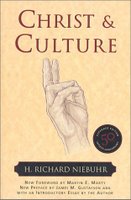
Foundationalism is not the cause of these attitudes; in fact these attitudes appear in the emergent church also. There are those who think they understand the way things should be, and if you’re not postmodern you are given a smug look and a roll of the eyes. Abandoning the idea of truth is not the answer to these problems. The emergent church with all of its motives that seem to be in line with Godly living, has thrown the baby out with the bathwater. For if truth is gone, then what is Godly living and all these motives and attitudes they promote, but constructs in their linguistic world. To put it into one of H. Richard Niebuhr’s categories, all we have is the “Christ of Culture (Neibuhr, 83).” The Christ each culture creates, and this is not the Christ of Scripture.
-Doug Eaton-
Works CitedBerkhof, Louis,
Summary of Christian Doctrine, (Eerdmans, 1938)
Clark, Gordon H.,
God’s Hammer, The Bible and Its Critics, (Trinity, 1982)
Erickson, Millard J.,
Reclaiming the Center, (Crossway, 2004)
Jones, Tony,
Postmodern Youth Ministry, (Zondervan, 2001)
Nash, Ronald,
Faith and Reason, (Zondervan, 1988)
Nash, Ronald,
The Word of God and the Mind of Man, (P&R, 1982)
Niebuhr, H. Richard,
Christ and Culture, (Harper, 1951)
Rorty, Richard,
Contingency, Irony, and Solidarity, (Cambridge, 1989)
Smith, R. Scott,
Truth and the New Kind of Christian, (Crossway, 2005)
Sweet, Leonard,
Postmodern Pilgrims, (Broadman and Holman, 2000)
Wells, David F.,
Above all Earthly Powers; Christ in a Postmodern World, (Eerdmans, 2005)
Labels: Emergent, epistemology, philosophy, postmodernism, truth
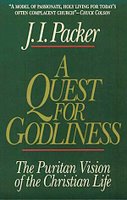 "If we do not preach about sin and God's judgment on it, we cannot present Christ as Saviour from sin and the wrath of God. And if we are silent about these things, and preach a Christ who saves only from self and the sorrows of this world, we are not preaching the Christ of the Bible . . . Such preaching may soothe some, but it will help nobody; for a Christ who is not seen and sought as a Saviour from sin will not be found to save from self or from anything else."
"If we do not preach about sin and God's judgment on it, we cannot present Christ as Saviour from sin and the wrath of God. And if we are silent about these things, and preach a Christ who saves only from self and the sorrows of this world, we are not preaching the Christ of the Bible . . . Such preaching may soothe some, but it will help nobody; for a Christ who is not seen and sought as a Saviour from sin will not be found to save from self or from anything else."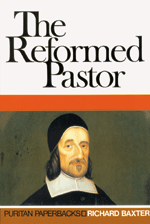
















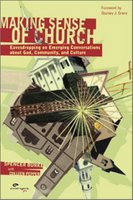 I am all for spiritual formation, but it is some of the methods that concern me. Not to mention some of the underlying theology of some of those involved. Simon Chan who I quoted in the last post make makes a statement similar to Tony Jones regarding Justification and Sanctification being two sides of the same coin. As I already mentioned in a previous post, this has some serious consequences on the doctrine of justification.
I am all for spiritual formation, but it is some of the methods that concern me. Not to mention some of the underlying theology of some of those involved. Simon Chan who I quoted in the last post make makes a statement similar to Tony Jones regarding Justification and Sanctification being two sides of the same coin. As I already mentioned in a previous post, this has some serious consequences on the doctrine of justification.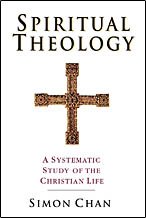 “Spiritual theology seeks to understand spiritual growth form beginning to end, making use of biblical and experiential data. Thus many ancient spiritual writers trace the development of the spiritual life as stages of growth. Perhaps the best known is the “three ways” of purgation, illumination and union, a scheme that crops up repeatedly in spiritual writings throughout history. Thomas has three classes of Christians: beginners, proficients and perfect. Bernard sees growth as four degrees of love and as twelve steps of humility. Teresa of Avila speaks of seven grades of prayer. In traditional Protestant theology, the Christian life is understood as progressing according to a certain “order of salvation” (ordo salutis): justification, sanctification and glorification.”
“Spiritual theology seeks to understand spiritual growth form beginning to end, making use of biblical and experiential data. Thus many ancient spiritual writers trace the development of the spiritual life as stages of growth. Perhaps the best known is the “three ways” of purgation, illumination and union, a scheme that crops up repeatedly in spiritual writings throughout history. Thomas has three classes of Christians: beginners, proficients and perfect. Bernard sees growth as four degrees of love and as twelve steps of humility. Teresa of Avila speaks of seven grades of prayer. In traditional Protestant theology, the Christian life is understood as progressing according to a certain “order of salvation” (ordo salutis): justification, sanctification and glorification.”


 In the book Reclaiming the Center, R. Scott Smith explains the emergent view of truth that is held by some of its leaders such as Stanley Grenz, Brad Kallenberg, and Brian Mclaren. Smith explains how they do not believe objective truth is possible, because no truth statement we know or speak can actually correspond to reality. This is because language is a created barrier that keeps us from having access to the real world. Since all truth is formed in language, no truth can actually correspond to reality (i.e. we do not know things as they really are). Instead we create our truths, and make them what they are. One of their favorite things to say is, "we do not inhabit the world as it really is, instead we inhabit a linguistic world of our own making.
In the book Reclaiming the Center, R. Scott Smith explains the emergent view of truth that is held by some of its leaders such as Stanley Grenz, Brad Kallenberg, and Brian Mclaren. Smith explains how they do not believe objective truth is possible, because no truth statement we know or speak can actually correspond to reality. This is because language is a created barrier that keeps us from having access to the real world. Since all truth is formed in language, no truth can actually correspond to reality (i.e. we do not know things as they really are). Instead we create our truths, and make them what they are. One of their favorite things to say is, "we do not inhabit the world as it really is, instead we inhabit a linguistic world of our own making.